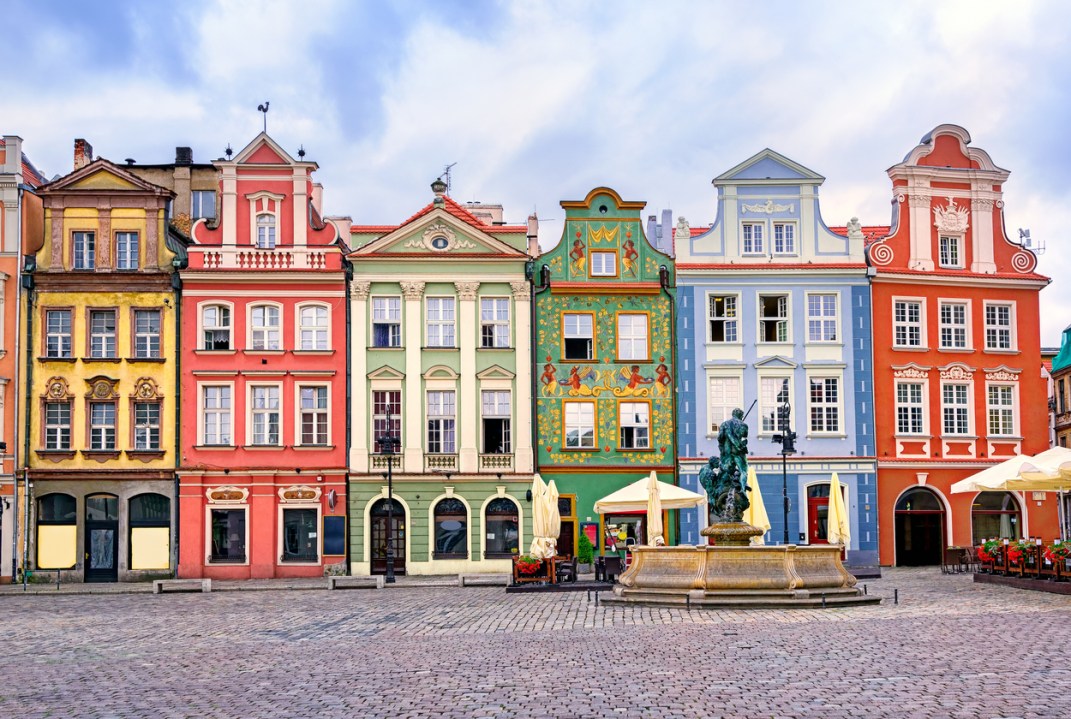The English teacher abroad is a generally peripatetic animal. He moves somewhere for a year or two and then gets bored, runs out of money or fathers an illegitimate child before moving along. Meet him and he has a thousand stories about Mexican border guards, Thai prostitutes and Russian oligarchs. Enjoy the conversation. He won’t be there for long.
The good Japanese schools didn’t want a random English kid with no experience
Not me, though. This weekend marks ten years since I moved to Tarnowskie Góry in Poland. Tarnowskie Góry is an hour from Katowice, in Upper Silesia. It’s a charming town of about 60,000 people, built round a historic silver mine and ringed by forests. The centre, with its time-worn churches and its bustling coffee bars, is surrounded by enormous housing estates. One of them was called Manhattan, because of its tower blocks, and one was inexplicably nicknamed Ohio. The latter name stuck, perhaps because it is so odd.
Ten years is a long time to live in a place. If someone gets ten years in prison you know they have done something seriously wrong. Fortunately, this is where comparisons with prison end. I have felt freer in Tarnowskie Góry than I have anywhere else.
I never meant to come here. I wanted to go to Japan. Somehow, though, the good Japanese schools didn’t want a random English kid with no experience. So, a generous invitation to teach English in a town I’d never heard of, in a country I knew almost nothing about, was my only option.
I felt like a bit of a fraud. Here I was, teaching kids who often seemed more balanced than me, and certainly smarter and more dedicated. All I had on them was an inherited knowledge of a few phrasal verbs. But living abroad can be a good challenge to yourself. You have to learn or you have to leave.
I told myself: I’ll get some experience and then go somewhere else. I enjoyed my first year enough to come back for a second. Then I found myself in a relationship and decided to stay for a third. The relationship broke down over the summer but somehow I didn’t think to change course. I haven’t seriously thought of leaving since. What a lucky break I’d had. I can’t imagine being happier anywhere else.
In the time I’ve lived here, Poland has been escaping its undeserved reputation for aesthetic and cultural austerity. In 2013, it still bore the soot of communism. Slowly, people are discovering the grandeur of its cities, and the beauty of its landscapes, and the depth and humour in its cultural life (not to mention – for now – the price of beer).
But as much as I’ve loved Poland, I have really loved Tarnowskie Góry, because Tarnowskie Góry is my home. What does it mean to feel at home? It means to be welcomed, of course, and I couldn’t be more grateful to the friends, employers, colleagues, barmen et cetera who have welcomed me. Meeting Poles, you might think them a bit frosty. But their warmth is lurking, not far from the surface.
Home means to inhabit an environment that suits you, and I love the rich adumbral walkability of my town. Living near the centre, you can be five minutes away from your local bar and fifteen minutes away from fields.
But it’s also something harder to define – a sense of being a part of one’s environment and not an outsider looking in. A sense of living life in concert with one’s surroundings – enjoying their evolution, because you’re evolving too. Granted, I actually am an outsider – and I’m also grateful to the Polish government for allowing me to stay here at all – but you can be an outsider and yet feel somehow intrinsic to a place. An insider-outsider perhaps.
This would be a more heart-warming piece if I could talk about the stability I’ve found here. But that would also be untrue. I arrived in Poland as a single, somewhat aimless 22-year-old and after different ups and downs I find that I’ve become a single, somewhat aimless 32-year-old. I have left English language teaching – a famously insecure profession, full of people with unhappy private lives and problems with alcohol, for journalism – a famously insecure profession, full of people with unhappy private lives and problems with alcohol.
Social and professional logic suggests that I should leave – head somewhere bigger and somewhere new. But I can’t bring myself to do it. How often in life does one have the sheer luck to find a place that one can truly call home?







Comments